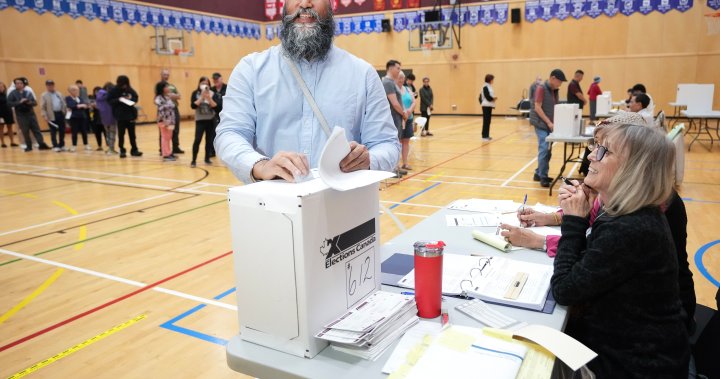Jagmeet Singh, leader of Canada’s New Democratic Party (NDP), has announced his resignation following a devastating defeat in the 2025 federal election. Singh lost his seat in Burnaby Central, and the NDP experienced a significant decline, winning only seven seats nationwide—falling below the threshold required for official party status in Parliament. The outcome marks one of the party’s worst electoral performances in recent history, prompting a period of reflection and leadership transition for the NDP.
Details of the 2025 Federal Election Outcome
The 2025 federal election results delivered a substantial setback for the New Democratic Party under Jagmeet Singh’s leadership. Singh lost his seat representing Burnaby Central, a key riding that had been considered a stronghold for the party. Nationally, the NDP secured only seven seats, a steep decline from the previous term when they held 25 seats. This drop places the party beneath the parliamentary threshold of 12 seats required to maintain official party status, which grants access to certain funding and procedural privileges in the House of Commons.
Implications of the Defeat for the NDP
The loss represents a significant political and strategic challenge for the New Democratic Party. Official party status is critical for maintaining influence in parliamentary debates and for securing resources necessary for effective opposition work. Without it, the NDP may face restrictions that could impact their ability to support their constituents and promote their legislative agenda. Party officials have expressed concern about the implications of this reduced presence, noting the necessity of rebuilding and regaining voter trust in future elections.
Leadership Resignation and Future Prospects
Following the election, Jagmeet Singh publicly announced his resignation as NDP leader, acknowledging responsibility for the party’s disappointing performance. In his resignation statement, Singh emphasized the need for fresh leadership and new strategies to revitalize the party. The NDP has initiated plans to hold an expedited leadership election to guide the party forward amid this period of transition. Party members and analysts anticipate a rigorous leadership contest reflecting diverse visions for the NDP’s future direction.
Broader Political Context
The 2025 election results were shaped by a complex political environment, including shifting voter priorities, electoral alliances, and the rise of other parties. Analysts note that issues such as economic policy, climate change action, and social justice measures played pivotal roles in voter decision-making across regions. The Liberal Party and Conservative Party both increased their seat counts, while emerging political movements further fragmented the electorate. This changing landscape demands a reassessment of NDP strategies to remain relevant in Canadian federal politics.
Next Steps for the NDP
- The party will conduct a comprehensive review of campaign strategies and messaging to identify areas requiring improvement.
- Preparations for the leadership race will include consultations with party members, stakeholders, and grassroots organizations.
- Engagement with policymakers and community leaders will be prioritized to rebuild the party’s platform aligned with electorate concerns.
- Efforts to strengthen regional support bases and reconnect with traditionally NDP-aligned voters will form a critical part of the recovery plan.
Conclusion
Jagmeet Singh’s resignation marks the beginning of a significant transition period for the New Democratic Party following its substantial losses in the 2025 federal election. The party faces the dual challenges of regaining official party status and redefining its role in Canadian politics. The upcoming leadership election and strategic realignment will be critical in shaping the NDP’s future as it seeks to rebuild and reconnect with voters nationwide.
Jagmeet Singh’s resignation signals a pivotal moment for the New Democratic Party as it confronts the aftermath of the 2025 federal election defeat. The loss of official party status and diminished parliamentary presence necessitate a thorough reassessment of the party’s strategies and leadership. Moving forward, the NDP’s ability to revitalize its platform, engage with its core supporters, and adapt to the evolving political landscape will be essential to restoring its influence and effectiveness in Canadian federal politics.

